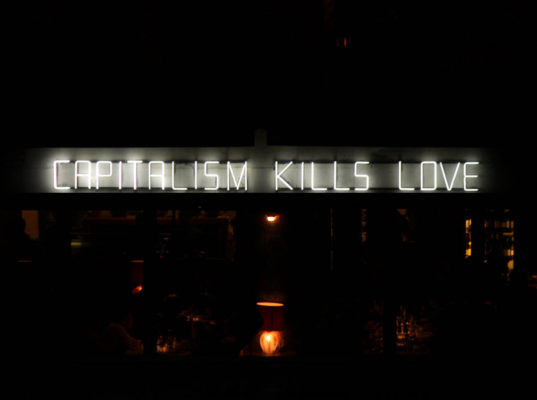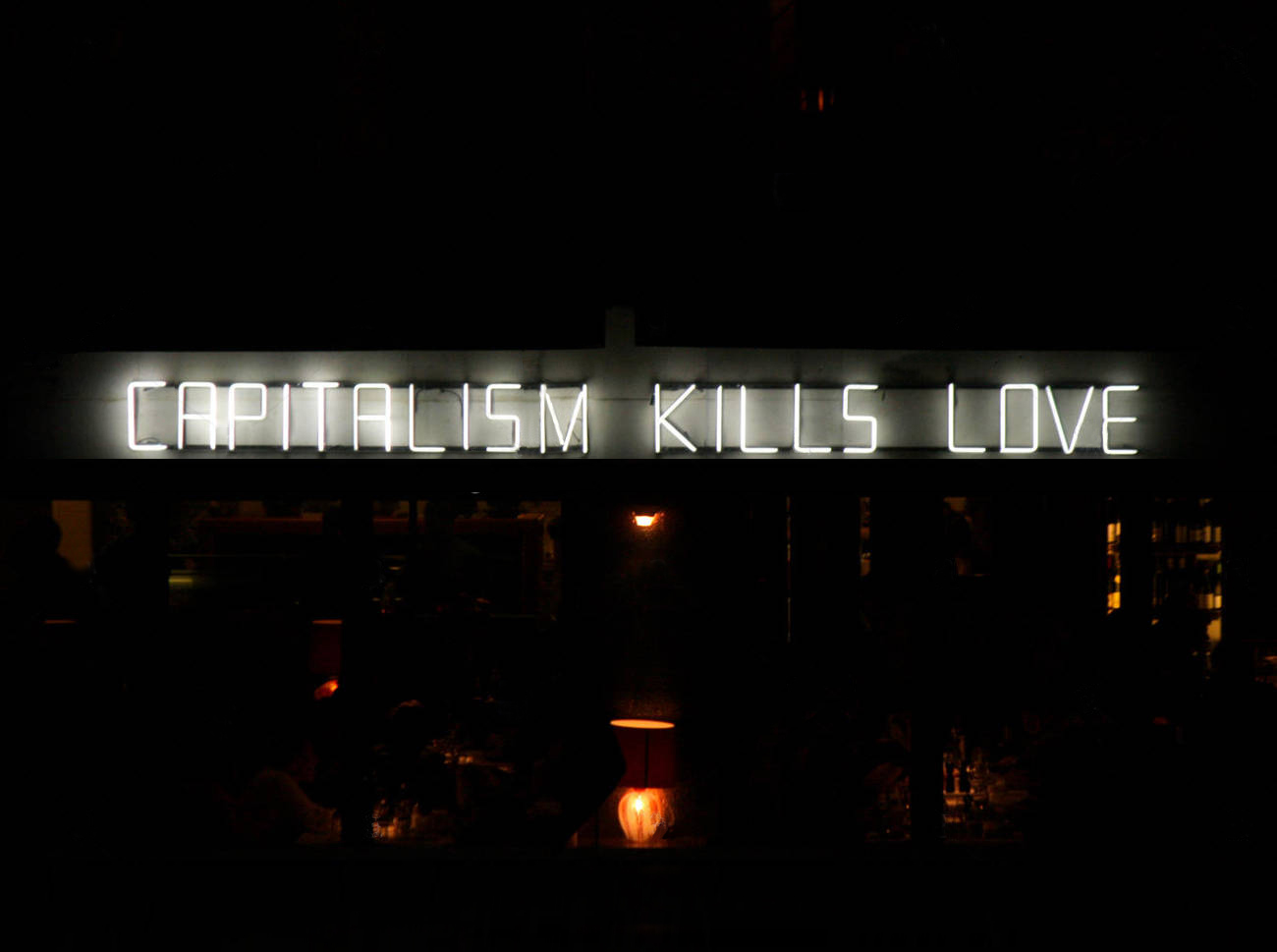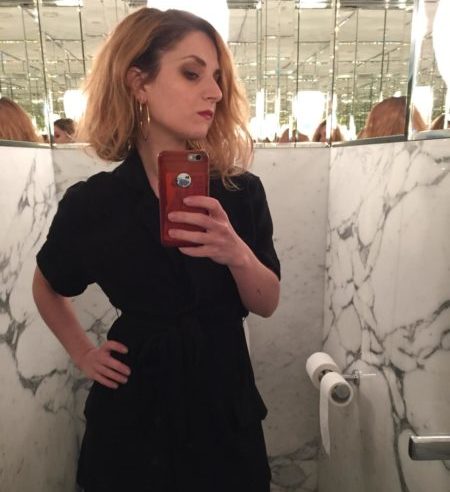Search
To search for an exact match, type the word or phrase you want in quotation marks.
A*DESK has been offering since 2002 contents about criticism and contemporary art. A*DESK has become consolidated thanks to all those who have believed in the project, all those who have followed us, debating, participating and collaborating. Many people have collaborated with A*DESK, and continue to do so. Their efforts, knowledge and belief in the project are what make it grow internationally. At A*DESK we have also generated work for over one hundred professionals in culture, from small collaborations with reviews and classes, to more prolonged and intense collaborations.
At A*DESK we believe in the need for free and universal access to culture and knowledge. We want to carry on being independent, remaining open to more ideas and opinions. If you believe in A*DESK, we need your backing to be able to continue. You can now participate in the project by supporting it. You can choose how much you want to contribute to the project.
You can decide how much you want to bring to the project.

NATALIA CARMINATI, artist, Capellades, August 10th
Why do I work? I really think that’s an excellent question. One has the urge to answer the first thing that comes into one’s head but I think it’s a much deeper question that makes me reflect on the relationship I have with my work and how I identify with it. In principle, I would say: because it responds to a personal realization, it is part of my essence as is love or any other area of life, it is that vital essence that makes me feel active, alive, awake, happy. My work, since the engine is creation, is for me an impulse that I feel as natural. I can be doing anything else and at the same time be thinking about creating. For me it is something inevitable and that makes me happy. For me it is something absolutely necessary, even if it does not always correspond to remuneration. As far as financial compensation is concerned, there is a gap between the work that gives me something back financially and my work as an artist, which questions the personal fulfilment that one feels when creating. Facing the outside (of art), it looks like unproductive and unnecessary work, even though I don’t see or feel it that way. To the outside, even sometimes to my family, it seems like a waste of time. But I see it as more productive and meaningful than other paid work. So, I keep working because my mind can be detached from that work-money equation and because it is a way of realizing love, of self-improvement, of self-exploration. Therefore, I continue working and I will continue working.
SQUH, DJ, Sabadell, August 13th
The idea of work is linked to capitalist market logics. Work is what a person does, forced by the need to obtain wealth to survive in society.
But there are human disciplines such as art -and not only art, but also others such as science, sport or medicine-, whose nature is in direct conflict with these market logics. However, all of them are considered work, in order to make them fit somehow into the capitalist system, which then usually generates anomalies, such as the financing of certain scientific research for profit and not for the need or human desire for knowledge, or the ethical conflicts generated by the fact that some people cannot access necessary medical services because they do not have enough capital to do so.
In the world of art, other examples of this conflict may be the arbitrary way in which pieces are valued, or the very success of an artist – whose image is often intentionally distorted through marketing and merchandising techniques -, or the typical clashes between the creative and commercial mentality in industrial creative processes such as music, video games and film.
The thing is that we live in a world that requires the monetization of any activity in order to call it work. That’s when you become a professional of something. Meanwhile, the thing in question remains in the field of leisure or hobby. In my case, I’m a professional DJ because I get paid for it, and those places where I’ve performed will be on my resume. However, all those parties I have played at that have not been paid for, many people will consider them anecdotal, even though for me some of them may have much more value on a technical and creative level.
And that’s why I’m going to keep working, even if there’s a global pandemic, or a civil war. Because deep down, expressing the result of a certain creative drive within us is, after all, a necessity. And if you get paid for it, it’s already fucking cool.
ENRIC PUIG PUNYET, writer and director of La Escocesa, Barcelona, August 13th
For a start, I will not commit the folly of automatically confusing, as many of us would have a tendency to do, the question “Why do you keep working” with the very different “Why do you keep working at what you do”. The latter, for those of us who have been asked it, that is, for those of us who are dedicated to culture in this country -and, even more so, for those of us who believe, out of naivety, narcissism or optimism, that certain artistic actions have the rare capacity to bring about an alteration of the world we inhabit-, would be like asking “Why do you keep putting up with this?” Why do we continue to put up with precariousness and ingratitude for a social function that our environment does not recognise or that, in the best of cases, is branded as ornamentation, embellishment or, even worse, as speculative merchandise?
However, the question here is not that but “Why are you still working?” And in the face of this question, as I say, we must avoid the lightness of answering anything that has been written up to now, but look first and foremost, and even more so today, at all those human bodies without work that cannot survive, who would like to be able to find themselves answering this question now. And we must also remember those other bodies that, victims of the processes of alienation and automation – which the system applies not only to machines but also to biological bodies – are forced to repeat the same meaningless actions over and over again as part of a job that has nothing to do with an emancipatory conception of work – who, once again, would like to be in the position of being able to answer this question.
I don’t come from any particularly advanced lineage, either economically or symbolically, and yet, at the time of positioning myself vitally and professionally, I had a suspicion that culture might serve to alter the oppressive and unacceptable world we inhabit. For me, this had, among other things, the consequence of having to make compatible for a long time the social function that I desired – be it through writing, curating or teaching – with the social heritage that forced me into undesired jobs in order to subsist, live and continue breathing within my beliefs. Throughout those years I was a proofreader, a waiter, a tourist guide, a writer of other people’s texts, a computer technician, a shop assistant and a salesman, all jobs that I didn’t want to do but that allowed me to live in a world that could only pay me for what, in my opinion, I was worse or more unwilling to do.
Today, fortunately, I am in the privileged position of being able to live from a job that is not only relatively emancipatory – seen in the light of the system in which we are enrolled – but that allows me a certain social function in accordance with my ideology. It is a privilege because it is included in a world that, because of its own structural heritage, finds it difficult to perceive the usefulness of art and culture as social catalysts, as unfortunately it does perceive the benefit of any employment in the service of capital accumulation. I will continue to work comfortably as long as this situation of privilege lasts – and less comfortably if it is ever interrupted – pursuing, among many other endeavours, that being paid for work that imagines long-term disruptive transformations will no longer be a situation of privilege.
GISÉLE MARTÍNEZ, Archaeologist, Barcelona, August 14th
Because it looks good
ESTEBAN CORNACHIA, artist, August 14th
Because I can
JORDI MITJÀ, artist, August 14th
I always say I can’t do anything else, and that’s the worst excuse.
ALBA MAYOL, philologist, translator and artist, Barcelona, August 15th
Un plan de fuga
tiene que ver con una isla
Ella me dijo
Si haces eso, tu propia fuerza te destruirá
Lee este libro de Marguerite Duras
Preferiría no hablar de Marguerite Duras dije
Estuvimos un año hablando sobre ella
hasta la despedida, dijo Buon lavoro
En un texto sobre Autonomia Operaia:
Per quel che riguarda la mia esperienza, il modo in cui sono entrata nel movimento, quel
che mi interessava era la volontà che c’era di esprimere un rifiuto radicale del lavoro,
della fatica, di tutte le cose che sono caratteristiche del capitalismo. Cioè non mi battevo
perché ci fosse la bandiera rossa davanti alla fabbrica ma poi dentro si lavorasse allo
stesso modo di prima
Ella no hablaba del trabajo del capitalismo
hablaba de
acto
palabra
energía
libidinal
Todo lo que entra y sale de tus cuadernos clairefontaine
como luces inconexas transmitiendo una señal por descifrar
Haz lo que quieras, te envío esta obra de Claire Fontaine, para tu archivo:

ELADIO AGUILERA, artist, Barcelona, August 17th
And why not?
Well, it’s a question that, although it doesn’t seem like it, I’ve asked myself once or twice on the rebound; and why the hell am I doing this? What’s the point? It is more than proven that art does not change the world, it barely has an impact on it. The shockwave of art, for the most part, is quite weak. On the other hand, I think I’m clear about the pure idealism behind continuing to think and ‘work’ in art. It seems that it still pushes the echo of the one who was told that he had an artist’s wood just for drawing out of inertia, boredom and/or evasion. And the fact is that we put up with this by being heavy, insistent and stubborn. We refuse to accept once and for all that we are at the mercy of many external agents from whom we extract validation, reputation and, hopefully, some money. But it is not the business relationship that attracts us, although it is a welcome consequence. It may be that what engages us is the satisfaction or the promise of personal fulfillment, of catharsis, through something that we’ve screwed up ourselves with the help of the art we consume, conversations with friends, books, movies, and our Instagram feed. The fact of being able to converse with others through something other than the exhausting verbiage of language.
TIRSO ORIVE, artist, Canet, August 17th
G – ¿Por qué sigue usted trabajando?
T – La interrogación que usted me hace quedaría respondida de esta forma (?).
G – Pro’siga’, por favor.
T – Consideramos que en esta cuestión, ‘seguir’ prevalece sobre el hecho de ‘trabajar’.
(un breve tiempo más tarde)
Ahora en la “quietud” ya no percibimos ningún per’seguimiento’ angustioso.
G – ”Mire, pero no pare”.
(pero un tiempo más tarde)
T – La ”continuidad” se ”’sostiene”’ como una proeza vital del que lo con’sigue’.
MABEL PALACÍN, artist, August 23
I continue to work because this work is based on freedom, on the possibility of opening up other worlds, other forms and creating one’s own rules, disobeying designed behaviours, even one’s own. This work is linked to a way of living that implies choices, numerous renunciations and strong commitments that must be maintained with a certain obsession. But among all this there is also an important component of pleasure and that is already a sufficient reason.
I continue to work because I believe and strive to participate in a conversation that has been going on for a long time and that extends into space to unknown places.
I continue to work as part of this conversation, sometimes I feel that I am being answered and sometimes I feel that I am launching messages like rockets into space.
DAVID G. TORRES, August 24th
I don’t know

Gisela Chillida (Barcelona, 1987) is an art critic, independent curator and cultural manager. She writes regularly for the magazines and publications Bonart, Hänsel i Gretel, Núvol-Digital de Cultura, La Maleta de Portbou, Politica&Prosa and Diario Levante. Recently, he has published the book “Galeries d’art a Catalunya” and the catalogue of the exhibition “Tàpies/Alcaraz/Rubert” at Kunst Lager Haas in Berlin. Some of her exhibitions as a curator have been shown in the galleries Àngels Barcelona (Enésima Intempestiva), Arte Aurora (El pliegue y Seastanding) and Àcid Sulfúric (Europolis), the space Cera 13 (Luna y polvo) or in Fase Espacio de Creación y Pensamiento. Since 2018, she coordinates the Loop Discover Award, held within the framework of the LOOP Barcelona video art festival and fair.
"A desk is a dangerous place from which to watch the world" (John Le Carré)